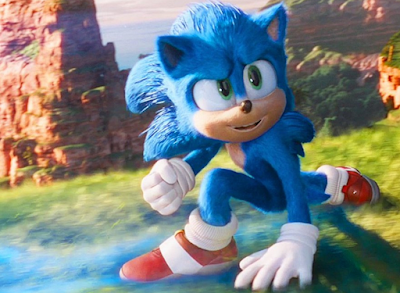There's a level of quality to Liam Neeson movies you just don't get with other aging action stars. It's not just gratitude that he hasn't gone totally off the rails like, say, Bruce Willis: even when a Neeson actioner seems like a fairly basic effort - which let's admit, The Honest Thief is - there's always a couple of scenes or twists that show that somebody somewhere along the line was looking to make a decent movie. And for a film like this, "decent" is pretty solid praise.
Tom Carter (Neeson) is a break-and-enter thief who's racked up a seven-figure haul from various banks over the last few years. Then he meets Annie (Kate Walsh) at the storage center she owns and runs, and despite a fairly average "meet cute" scene, he promptly falls head over heels in love. Time passes, he realises he can't go on living a lie with her, and so it's time for the so-called "In-and-Out Bandit" to give himself up.
Not being a total sap, he tries to cut a deal with the FBI: he'll hand himself in and hand over the cash if they give him a short sentence in a nearby prison where Annie can visit. Agent Sam Baker (Robert Patrick) and his partner Tom Meyers (Jeffery Donovan) get a decent laugh out of this, and to be fair Carter does come off as a bit of a rube in these early scenes - this is a movie that gets better as it goes along and there is a halfway decent explanation for why Carter seems a little out of touch with the world of crime, but it's a bit of a bumpy ride early on.
Not convinced Carter (who's calling them from a secret location, AKA a hotel) is the In-and-Out Bandit, Sam passes the investigation onto junior agents John Nivens (Jai Courtney) and Ramon Hall (Anthony Ramos), which is when things start to get interesting. Carter sends them to his cash stash to prove he's the man, they find the money and figure "why not just keep the cash and say the guy's a nutcase?" and before you know it everything has gone wrong for everyone and it's car chases and gun battles on the streets of Boston.
Interestingly for this kind of film, it's the bad guys who start out as the smart ones. Niven's plan is a perfectly good one that only goes awry though bad luck (well, good luck for Carter), while Carter is kind of a chump until it's time to turn into Liam Neeson, action hero - and even then there's just enough to his character to give him a handful of scenes that aren't the usual run and gun stuff.
This is a little rough around the edges at times - there are some decent car chases and nice Boston location shooting; there are also a few sets that really look like sets - but there's enough polish on the script (co-written by director Mark Williams) to keep it from feeling completely generic. Character quirks are the kind of thing that add value to this kind of film but are too easily overlooked: whether it's Meyers stuck with his ex-wife's dog or Carter grousing about being dubbed "The In-and-Out Bandit", this has just enough sparkle away from the action to keep things interesting.
Neeson's action career has largely kept ticking along because he's been willing to push things a little. Bouncing between films like A Walk Among the Tombstones, The Commuter and Cold Pursuit, he's managed to find ways to keep his formula relatively varied while still delivering what his fans are looking for. The Honest Thief is perfectly satisfying for what it is, which is the most generic action film he's made in a while; guess that's one way to keep bucking the trend.
- Anthony Morris















